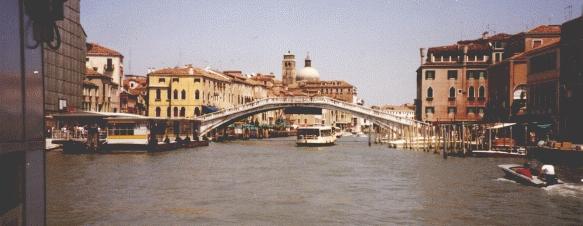

We all know that most countries have their own large and usually prosperous stock exchanges, the most well known being Wallstreet in New York, but it might surprise you to know that the first actual stock exchange took place in Venice, over seven hundred years ago.
(Powerpoint Display: picture of venice marketplace)

The reason that it first took place there, was because the Venetian government started to borrow money to finance its operations. When they found out they couldn't repay their loans, they converted them into bonds, which gave anyone who wanted to invest in them a 5 % rate of return. While these bonds were being traded in the open marketplace, alongside the other various fruit stands, pottery and silk stands, it gave the government a way to finance its operations and still stay on top of its debts. This first ever trading scene laid the foundations for the Sharemarket.
Other countries such as England started to adopt the system, but they relied on taxes and loans to finance their activities, which meant you would never make any money from lending to the crown.
The Crusades were another example of early money raising. They were financed by the money Richard the Lionhearted had borrowed from merchants. Instead of the merchants receiving interest, they were given special privileges or use of land which they probably found a lot more profitable than interest.
It wasn't until the 1690's that the English National Debt was officially established by William 3. This was created when King William asked the general public to invest an overall 1 200 000 pounds in bonds he had issued. He promised them an interest rate of 8.5%. This lead to the creation of the Bank of England. These quite substantial funds were needed to finance the expensive wars they were having against the French, and the severe unrest in Ireland.
Up until this time, it was also very hard to borrow money, most people had to either steal money or borrow it from friends. People before this time also had no place to keep there money. With the introduction of the bank also came the added security of investing your money in the bank. Your money was then much safer than being in your house. Once it was made more clearer that you were guaranteed your money, plus your interest back at a certain time, bonds became much more popular.
It then became clear to most governments that they could raise additional money by issuing bonds. In the same style as these early governments, companies also needed to raise extra funds. Instead of giving interest though, companies offered equity. This means you became part owner of the company you invested in. You would then share in the profits and losses of your chosen company.
Some of the very first companies had names such as: 'The Expedition in Search of Gold and Associated Treasures into East India'. When a company like this had a project or voyage to complete, the funds were raised, and at the end of the project or voyage, the money was returned to the investors, plus they were given a share in the profits. If you wanted to buy shares in a company, your buy order had to be matched with a sell order, so this signalled the birth of the stockbroker.
As the stockbroking industry started to grow, they needed a central location for all of the trading to take place. The first official sharemarket was in Amsterdam in 1611. The most famous stock exchange, New York's Wallstreet emerged in 1752.
Here in Australia, the first stock exchange was held at a site in Sydney in 1871, which is now occupied by the Sydney GPO. Melbourne's first stock exchange emerged in 1885.
Ron Bennetts / The Stockmarket / pg 1-4